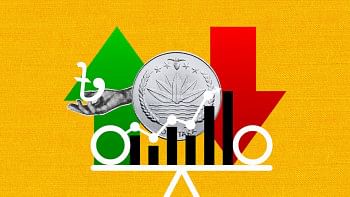'Nice work, gents': how traders manipulated the markets
In online messages full of bravado and Cockney rhyming slang, small groups of traders using names such as "The Three Musketeers" and "The A-team" colluded to manipulate foreign currency markets to maximise their profits.
They used private chats to share confidential information about deals being placed with their rival banks, and used that information to push benchmark rates up or down depending on what would earn them the most, regulators said.
"How can I make free money with no fcking(sic) heads up," said one trader in an exchange published by Britain's Financial Conduct Authority, which with US and Swiss regulators levelled hefty fines Wednesday against five major banks for rigging markets.
"Go early, move it, hold it, push it" -- read one of the chatroom lines, summing up how markets were manipulated.
Clients would place an order with their bank for a certain amount of euros, pounds or dollars to be bought or sold at a specific benchmark rate for that day, known as the "fix".
Traders are alleged to have put their orders together -- known as "building" or "leaving you with the ammo" -- to give them enough volume to shift the market before the fix is set.
Banks profit if they buy the currency at a lower rate on the market than the fix rate at which they sell to clients.
The most widely used benchmarks are the so-called 1:15pm daily fix by the European Central Bank, which is based on a snapshot of the market early afternoon, and the 4pm fix by WM Reuters (WMR), which takes an average of trading over a one-minute period.
In one example published by the FCA, US bank Citigroup had orders to buy 200 million euros at the 1:15pm euro-dollar fix.
The FCA claims the bank added to this order by "building" from other banks, and in the 15 seconds before the fix was set, used the volume of currency to push up the market price.
It placed a number of orders increasing in size and price, pushing up the average market rate so that the fix was set higher than it would have been even a minute earlier.
After the fix, the traders congratulated each other on a $99,000 profit for Citibank: "impressive" and "cnt [can't] teach that", they said in the online chatroom.
Similar conversations were evident involving traders from the other four implicated banks -- HSBC, Royal Bank of Scotland, JPMorgan Chase and UBS.
In one deal that made HSBC a $162,000 profit, a trader remarked, "nice work gents... I don my hat", while in another making $33,000 for JPMorgan one crowed: "we... do... dollarrr".
The traders also talked about "betty" -- Betty Grable, the US film star and rhyming slang for cable, as the sterling-dollar market is known -- and their huge bonuses, the FCA said.
"They are not trying to coordinate for the interests of their customer. They are coordinating for the interests of their own bottom line," said Therese Chambers, who led the FCA investigation.
Many firms have now imposed restrictions or outright bans on the chat rooms used by their traders.
The FCA's chief executive Martin Wheatley said preventing this kind of collusion was "not rocket science".
"It's fairly simple things like watching the extent to which people are using mobile phones on the trading floor, allowing them unmonitored use of private chat rooms, monitoring the activity around particular benchmark fixing points," he said.
Simon Hunt, a financial services risk and regulation partner at the consultancy PricewaterhouseCoopers, said banks had increased their surveillance following previous unauthorised trading incidents.
"Good progress is being made by bank management but culture change does not happen overnight," he said.

 For all latest news, follow The Daily Star's Google News channel.
For all latest news, follow The Daily Star's Google News channel. 



Comments